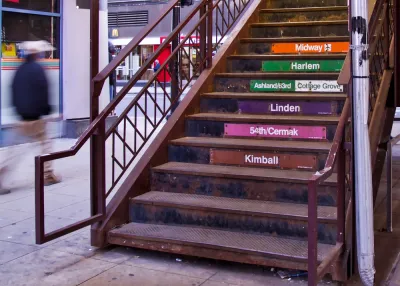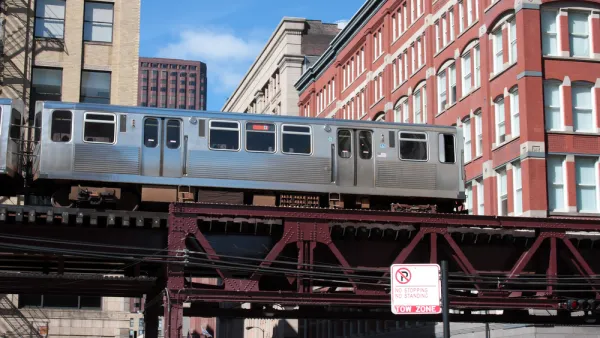The city of Chicago is already taxing rides with transportation network companies like Uber and Lyft. Now mayor Rahm Emanual wants to raise those fees and spend the extra money on transit projects.

Heather Cherone breaks the news about a potentially game changing proposal in Chicago, where "[t]he city is set to raise taxes on Uber or Lyft rides by 29 percent next year to fund improvements to CTA bus and train lines."
Mayor Rahm Emanual announced the proposed tax earlier this week, but the City Council still needs to approve the tax next month. If approved, "the city will add 67 cents to the cost of every ride hailed with a service such as Uber or Lyft next year, up from the current charge of 52 cents per ride," according to Cherone. " In 2019, that surcharge will rise another 5 cents to 72 cents — a 38 percent increase from 2017 rates, according to the mayor's proposal."
The city's existing rideshare taxes and fees are already generating a significant chunk of revenue—$56.9 million in 2016, with 81 percent of the money coming from Uber and Lyft. "In 2017, the city expects to collect $85.2 million, with 88 percent coming from Uber and Lyft," adds Cherone.
FULL STORY: New Tax On Uber, Lyft Would Pay For CTA Improvements, Rahm Says

National Parks Layoffs Will Cause Communities to Lose Billions
Thousands of essential park workers were laid off this week, just before the busy spring break season.

Retro-silient?: America’s First “Eco-burb,” The Woodlands Turns 50
A master-planned community north of Houston offers lessons on green infrastructure and resilient design, but falls short of its founder’s lofty affordability and walkability goals.

Delivering for America Plan Will Downgrade Mail Service in at Least 49.5 Percent of Zip Codes
Republican and Democrat lawmakers criticize the plan for its disproportionate negative impact on rural communities.

Test News Post 1
This is a summary

Test News Headline 46
Test for the image on the front page.

Balancing Bombs and Butterflies: How the National Guard Protects a Rare Species
The National Guard at Fort Indiantown Gap uses GIS technology and land management strategies to balance military training with conservation efforts, ensuring the survival of the rare eastern regal fritillary butterfly.
Urban Design for Planners 1: Software Tools
This six-course series explores essential urban design concepts using open source software and equips planners with the tools they need to participate fully in the urban design process.
Planning for Universal Design
Learn the tools for implementing Universal Design in planning regulations.
EMC Planning Group, Inc.
Planetizen
Planetizen
Mpact (formerly Rail~Volution)
Great Falls Development Authority, Inc.
HUDs Office of Policy Development and Research
NYU Wagner Graduate School of Public Service





























